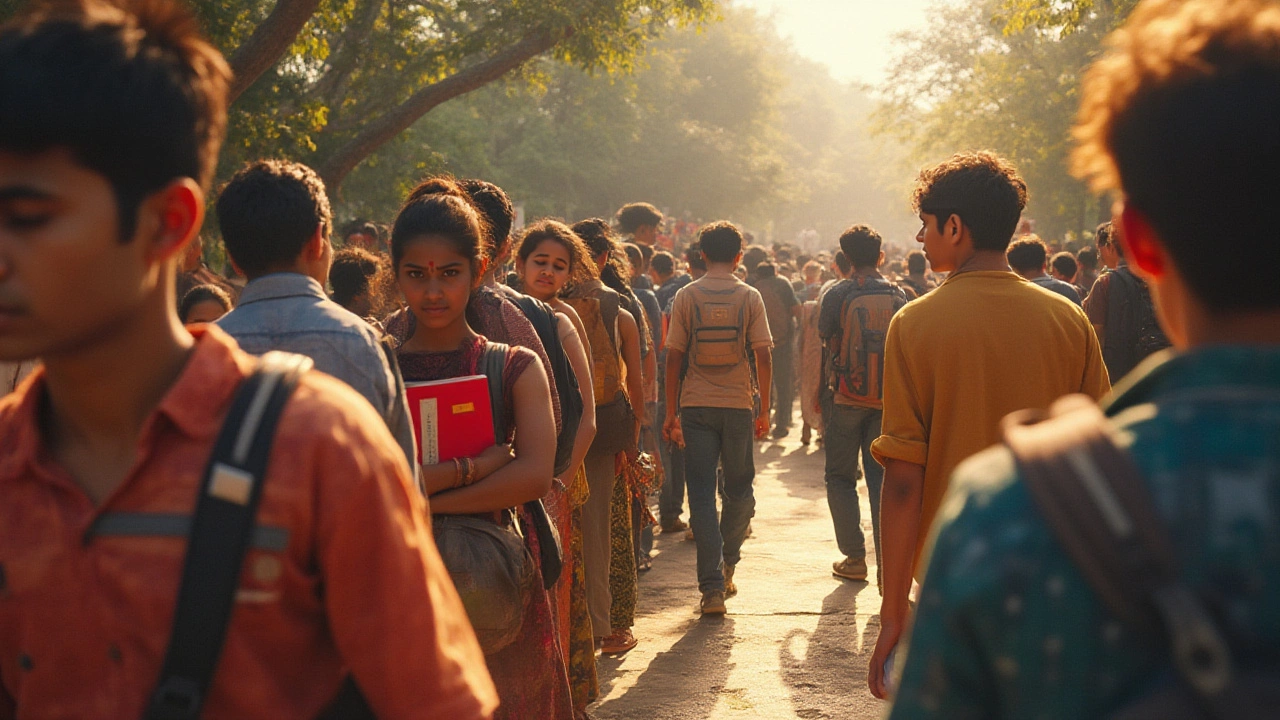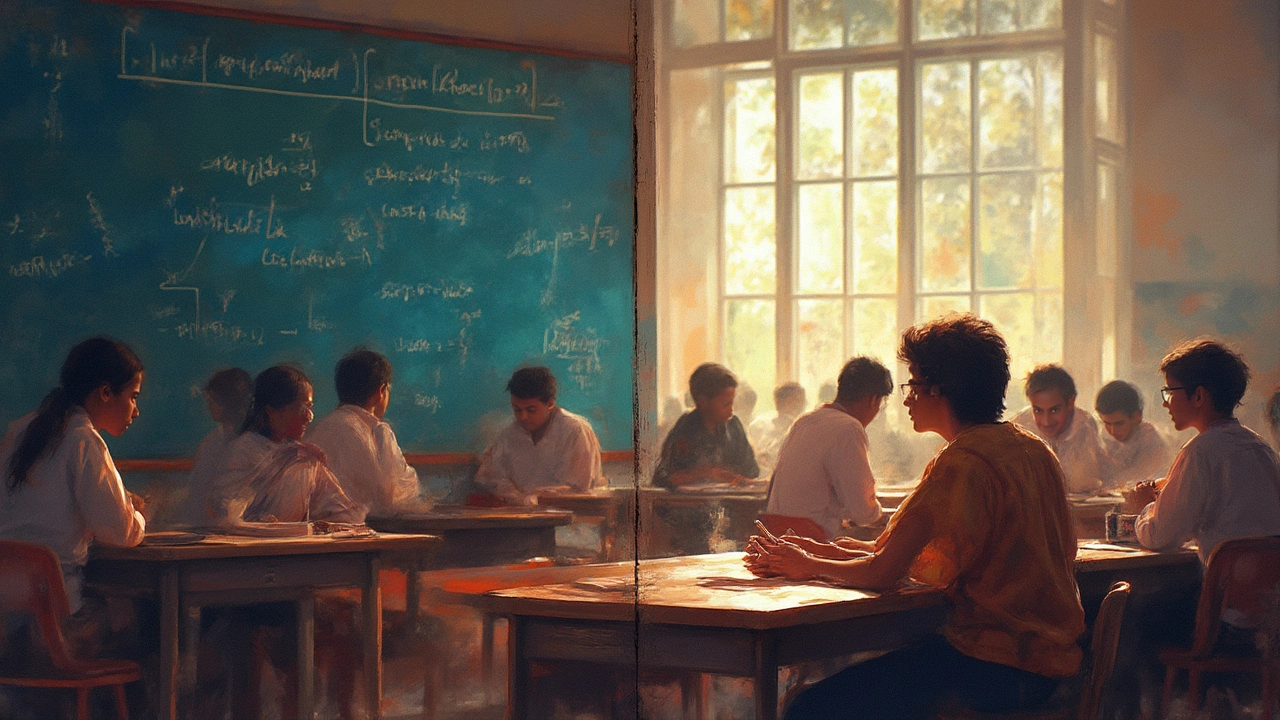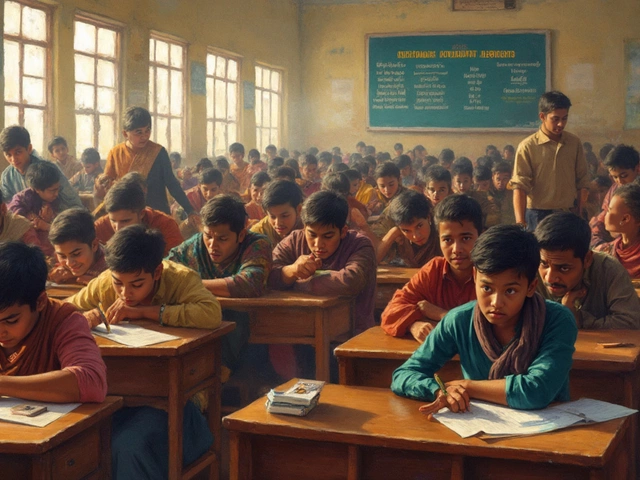
If you ever pop this question at a dinner party—Is IIT tougher than Harvard?—prepare for fireworks. People will argue both ways, sometimes for hours. Why does this comparison get everyone so riled up? Maybe because both names sound like tickets to stardom. Or maybe because they’re just wrapped up in legends, pressure-cooker exams, and stories of sleepless nights. Let’s slice through the hype and see how they really stack up next to each other.
The IIT and Harvard Myth: Why Do We Even Compare?
When a teenager in India says they want to crack the IIT, it’s immediately a family headline. The Indian Institutes of Technology (IITs) make the news every single year for just how hard it is to get in. We’re talking about the IIT Joint Entrance Examination (JEE)—something every ambitious Indian kid has heard about since grade school. It’s tough. There are YouTube channels, coaching factories, and entire neighborhoods that exist just to churn out future IITians. You can spot them by their sleepy eyes and stacks of practice tests.
Harvard, on the other hand, is the stuff of Ivy League dreams. Whether you’re in New Delhi or New York, just mentioning Harvard can cause a hush in the room. It’s got rarefied air, famous alumni, and a place in pop culture bigger than any American college. The selection rates are brutally low, the application essays legendary, and let’s not even start about those who build resumes from scratch just for a shot at the crimson gates.
So, what puts them on a collision course? People often compare IIT and Harvard because they see both as the ‘best of the best.’ Ask any IIT grad and they’ll rattle off global companies run by their batchmates. Flip the coin, and Harvard alumni sit in boardrooms, presidential offices, even in the Marvel Cinematic Universe. What really launches the debate, though, is the question of academic difficulty. Are the IIT entrance exams harder, or does Harvard hammer you once you’re in?
Just look at the acceptance rates: IITs select less than 1% of applicants each year. That’s not a typo. Talk to folks who’ve tried the JEE—many take gap years just to study for it. Meanwhile, Harvard hovers around 3–4%, which sounds generous until you realize most applicants also have top scores and world-changing resumes. So if you’re thinking it’s just about numbers, hang tight—there’s a lot more to unpack.
The Selection Process: Numbers Don’t Lie, But They Don’t Tell the Entire Story
This is where it gets spicy. At IIT, the main gatekeeper isn’t a committee reading your essays—it’s the JEE, a test that chews people up and spits them out all day long. Imagine a test so feared, there’s an entire industry built around it. Here’s a table with the hard stats:
| Institution | Applicants per Year | Acceptance Rate |
|---|---|---|
| IIT (JEE Advanced 2024) | ~189,744 | ~0.89% |
| Harvard College (2025 Admissions) | ~56,000 | 3.4% |
If you break down the JEE, it has a reputation for speed, complex problem-solving, and sheer unpredictability. One year, a question about trains will trip up everyone; the next, it’s a math puzzle. Each year, the entire country tunes in to see the cutoff score—which sometimes inches up by point zero something. A single careless mistake can end years of preparation.
At Harvard, it’s a different beast. They want to see *you*—your essays, your stories, your recommendations, your high school grades, the clubs you built or the robots you programmed on weekends. There are interviews with alumni. Some years, Harvard picks a few more engineers, others, a flurry of poets. Gemma, my wife, says it feels like Harvard’s selection process is a Rubik’s cube: you never know which color they’ll want on top. Harvard does love its standardized tests (hello, SAT and ACT), but these are less be-all, end-all than the JEE is for IIT.
If you grow up anywhere near an IIT hotspot—like Kota or Hyderabad—you’ll see kids starting coaching in sixth grade. Parents sign up for online mock tests before their kids learn algebra. It becomes a family mission, almost like training for the Olympics. I’ve seen teens skip birthdays, school trips, and cricket matches. Teachers there remember hundreds of question patterns, just hoping to predict the next JEE’s quirks. At Harvard, prepping starts with a killer school record and eco-social-credit—volunteering, leading, winning competitions. In the US, kids craft themselves as brands; in India, it’s almost a siege on science and math textbooks.

What’s Tougher: Surviving IIT or Succeeding at Harvard?
This is the twist most people miss. Getting in is a different flavor of tough from actually surviving or thriving once you’re inside. Let’s zoom into campus life for both.
IIT’s grind doesn’t stop after the JEE. The coursework goes from zero to warp speed—some first-year students admit they breathe easier in the toughest classes because it reminds them of JEE prep. Professors hand out problems that get solved by only a sliver of the class; there’s group study, and people sleep on lecture hall floors during exam weeks. And guess what? The pressure to secure the ‘best’ placement begins almost immediately. A misplaced decimal on an assignment might decide your internship. Many students post anonymous stories online about sleepless exam weeks, failed subjects, and the crazy curve where 30% is sometimes a top score.
Harvard isn’t a cakewalk either—but the academic culture is different. Instead of just scoring, you’re expected to show creativity, ask questions, pitch ideas. Professors are approachable, but they don’t spoon-feed. And then, there’s the famous “shopping week” where you try out classes before picking. Harvard students have a buffet of resources, but the pressure is about standing out in a room where everyone was a high school superstar. Harvard’s social life can be as stressful as academics—clubs, societies, and recruiting events run late into the night. People say you need to learn to say no, or you’ll burn out sipping coffee at 3AM, powering through another research draft.
The real divide? At IIT, everyone’s been through the same gauntlet. It creates a weird family vibe: competitive, but bonded by shared trauma. Harvard, with all its diversity, throws you among go-getters from all walks—Olympians, poets, whiz coders, activists. You compete, but often in different games. An ex-IITian who later went to Harvard summed it up:
"At IIT, the challenge is to make it through. At Harvard, it’s about figuring out who you want to be and how to get there."
Which Path Demands More—And How Should You Decide?
So, what’s the answer? Is IIT really tougher than Harvard? Truth is, it depends on what kind of tough you’re talking about. The IIT *entrance exam* is a monster; prepping for it can feel like a full-time job. If you survive, you’ve worn a badge of honor recognized across India and beyond. The Harvard route, by contrast, is about years of building a unique profile, mastering essays, and standing out in a crowd of superachievers. Once inside, Harvard offers more flexibility—you can shape your journey, take time to explore, dive into clubs or startups on the side. IIT is more structured; success often comes from playing by the rules and crushing the exams.
IITians tend to be math and science gladiators. They solve problems that some grad students would struggle with. Yet Harvard students, with their wide range of interests, learn to juggle many roles at once. There’s pressure, sure, but it’s sprayed across more dimensions—social, academic, entrepreneurial.
If you’re choosing—or just curious—here’s a tip: Know yourself. If you love relentless practice and enjoy outsmarting complex math problems under time pressure, IIT is your battlefield. If you’re more diverse in your interests and want to prove yourself with a story as much as with numbers, Harvard’s path will intrigue you. Both roads lead to different kinds of glory and stress. India’s coaching classes and America’s high school counselors are both churning out legends, just using different playbooks.
Neither is for the faint-hearted. But one thing’s clear: they produce people who shape the world, sometimes together, sometimes on opposite sides. The real test? Whether you’ll change things whichever route you take.





